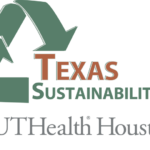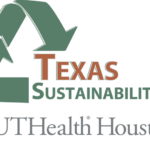Recycling is an essential practice for building a sustainable future, and the city of Dallas, Texas, has been making significant strides to establish a robust recycling program. With a population of over 1.3 million, Dallas faces the challenge of managing waste effectively while preserving natural resources and reducing its environmental impact.
Historical Context
The concept of recycling in Dallas dates back to the 1970s, when the environmental movement gained momentum across the United States. As concerns about pollution and resource depletion grew, Dallas began experimenting with recycling initiatives, albeit on a small scale. In its early efforts, the city focused on recycling paper, glass, and certain types of plastic.
Current State of Dallas Recycling

As of the most recent available data, Dallas has made commendable progress in its recycling efforts. The city operates a curbside recycling program, which serves a significant portion of its residents. Single-stream recycling, where all recyclable materials can be placed together in one bin, has been implemented to make recycling more convenient for citizens. This approach has proven to be successful in boosting recycling rates by simplifying the process for households.
Additionally, Dallas boasts several drop-off recycling centers located across the city. These centers enable residents without curbside recycling services to recycle their materials responsibly. By providing accessible recycling options, Dallas aims to ensure that all citizens have the opportunity to participate in the recycling movement.
Moreover, the city has been proactive in fostering partnerships with private recycling companies and non-profit organizations. These collaborations play a crucial role in enhancing recycling infrastructure and increasing public engagement. Local businesses have also been encouraged to adopt sustainable practices and participate in recycling efforts, contributing to the city’s broader sustainability goals.
Challenges and Obstacles
Despite the progress made, Dallas faces several challenges in its journey towards effective recycling:
Contamination: One of the most significant hurdles is the contamination of recyclable materials. When non-recyclable items are mistakenly included in recycling bins, they contaminate the entire batch, reducing the value and recyclability of the materials. Educating residents about proper recycling practices and improving sorting facilities can help tackle this problem.
Lack of Awareness: While recycling awareness has improved, some residents are still unaware of the city’s recycling program or the importance of recycling. Engaging in targeted educational campaigns to inform the public about the benefits of recycling and the proper ways to recycle can boost participation rates.
Economic Constraints: The recycling industry faces economic challenges due to fluctuations in commodity prices and transportation costs. To ensure the sustainability of recycling programs, Dallas must seek innovative solutions and explore alternative funding sources.
Limited Materials Accepted: Although Dallas has expanded its list of recyclable materials over the years, some items, like certain types of plastic or electronic waste, are not yet accepted in the curbside program. Addressing this limitation and incorporating more materials into the recycling system will be critical for further progress.
Innovative Initiatives and Community Involvement
Recycling Education Programs: The city has developed recycling education programs that target schools, businesses, and residential neighborhoods. By educating the younger generation, Dallas aims to instill sustainable habits that will endure for generations to come.
Green Incentive Programs: To motivate residents and businesses to participate actively in recycling, Dallas has introduced incentive programs. These programs offer rewards or discounts to those who consistently recycle or adopt eco-friendly practices.
Expansion of Recycling Centers: Dallas is continuously working on expanding its recycling center network. By providing more drop-off locations throughout the city, Dallas ensures that recycling is accessible to all residents, regardless of their proximity to curbside recycling services.
Public-Private Partnerships: Collaborations between the city, private recycling companies, and non-profit organizations have been instrumental in enhancing recycling infrastructure and launching awareness campaigns.
Dallas has come a long way in its journey towards sustainability and recycling. The city’s commitment to developing a robust recycling program, coupled with active community involvement, has yielded positive results. However, challenges still persist, and Dallas must continue to innovate and engage its residents to build a greener and more sustainable future. By addressing contamination issues, expanding accepted materials, and promoting awareness, Dallas can set a precedent for other cities, inspiring them to follow suit in the pursuit of environmental preservation and a brighter tomorrow for generations to come.







